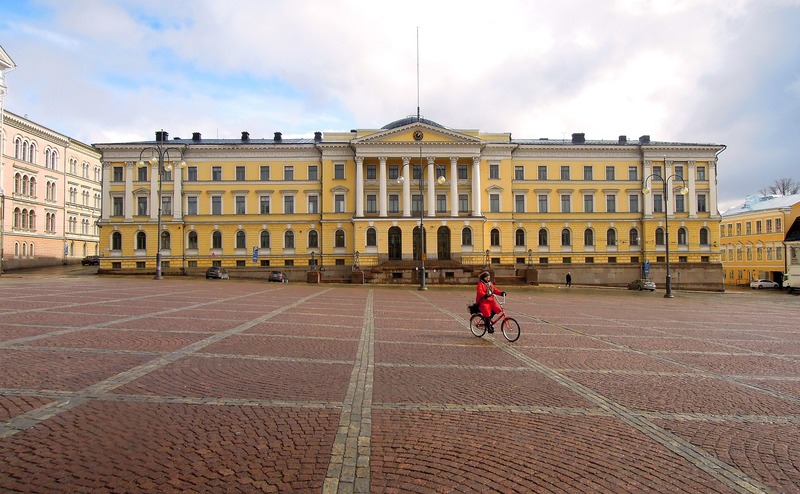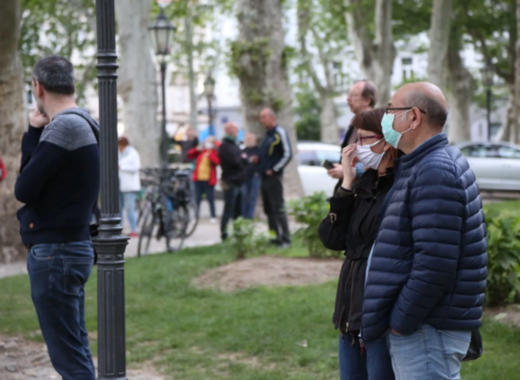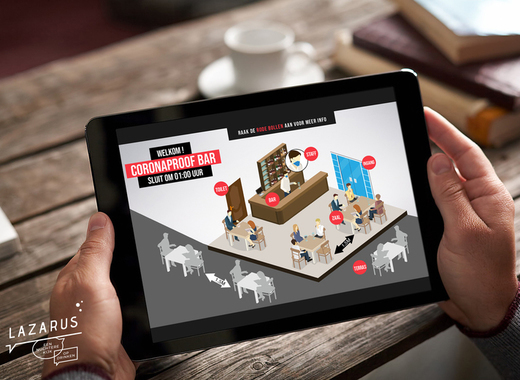Thessaloniki gets ready for its metro launch in November
The underground rapid transit lines have been under construction for almost two decades due to various project delays
 TheMayor.EU logo
TheMayor.EU logo A selection of the best solutions showing that EU cities can solve big issues with restricted resources
Without any doubt, the coronavirus pandemic has been dominating the political agenda for most of 2020. Since the first COVID-19 cases began getting officially registered on European soil, authorities were forced to quickly come up with solutions to contain its spread, even if they entailed the delay or even the cancellation of other projects and events.
One of the greatest challenges with the implementation of social and economic restrictions, has been the clash between national and local levels of government: usually, national authorities design the rules and limitations, while city administrations must create the conditions for their implementation. Not only that but local officials, as the ones closest to citizens, often face unfounded criticism from their constituents stemming from their dislike for the ever-shifting changes.
For this reason, we decided to look at the pandemic as yet another part of public life in which cities can innovate and to show you some of the best examples of city-led initiatives, that made the coronavirus pandemic more bearable and to remind you of the solutions that facilitated the adherence to the new rules. Although sometimes the boundaries are blurred, we have laid out some examples of the European cities’ creative potential and readiness to innovate, when the situation requires it, in four separate categories.
Modern technologies, including software and hardware solutions, have helped cities make great strides in their coronavirus response. For instance, drones, with their high level of mobility and the capacity to carry various objects, have proven a loyal partner in the battle against the pandemic. Some of the interesting examples of the use of drones include the contactless disinfection of public spaces (find out how Katowice did it), or the delivery of goods.
In the early weeks of the outbreak, when people experienced serious difficulties with respecting social distancing in the public space, some cities like Cluj-Napoca used drones to survey the movement of people and to remind them of the proper behaviour.
Other technological solutions from the past couple of months involve the mobilisation of humanoid robots to replace already exhausted medical staff in hospitals, or the ingenious uses of artificial intelligence to track the current temperature of a city population and predict potential outbreaks, as it is the case in Helsingborg.
Another key aspect of containing the spread of COVID-19 in which cities play a key role is ensuring that people can actually keep 1,5 metres apart at all times. For transportation, this sometimes meant cooperation between authorities, companies and transport operators to smooth out rush hours or the dedication of vehicles for the needs of the elderly, as is the case in Iasi.
In terms of leisure, some cities made great efforts to support the open-air operation of catering establishments or outdoor cafés, while others prevented crowding by offering people the chance to book online a spot on the beach or by allowing them to easily discover the least busy places to rest in the city.
 While some governments opted for making their public transport safer, others invested in cycling infrastructure, to keep people apart and healthy at the same time. See how the pandemic led to a cycling boom in Helsinki.
While some governments opted for making their public transport safer, others invested in cycling infrastructure, to keep people apart and healthy at the same time. See how the pandemic led to a cycling boom in Helsinki.
The physical closure of culture establishments has taken its toll on society, including those who produce and who “consume” culture. Luckily, over the last few months we observed some bold attempts to make culture accessible to everyone: from the youngest (see how Tallinn librarians read to children over the phone amid lockdown), to those who feel lonely at home (see how Leuven offers private concerts against loneliness), and to the oldest (see how Bratislava organized outdoor concerts for seniors).
 With practically non-existent opportunities to offer indoors cultural events, the National Theatre of Croatia turned Zagreb into an open stage for a while. Photo: City of Zagreb
With practically non-existent opportunities to offer indoors cultural events, the National Theatre of Croatia turned Zagreb into an open stage for a while. Photo: City of Zagreb
Getting the most reliable information about the disease in a timely manner, in the context of massive waves of disinformation, has proven quite a challenge since the start of the pandemic. To make sure their citizens get the latest and most accurate data and to give them the fast-track tool to ask their questions, Maltese local councils created mini online communities on social media. Each of them established a separate YouSafe Facebook group which continues to deliver fresh advice from the authorities and to communicate the needs of the population to this day.
For cities with greater population numbers, local administrations were obviously incapable of paying individual attention to each query. That is why many turned to Corona bots, offering dozens of readily available answers to the most popular questions and disproving fake news.
 Catering establishments can pone a serious challenge to the attempts of containing COVID-19, especially in the presence of clients who fail to observe social distancing. Training catering staff on how to recognise and control improper behaviour by alcohol abusers was the subject of a special training course in Leuven. Image: Lazarus Project
Catering establishments can pone a serious challenge to the attempts of containing COVID-19, especially in the presence of clients who fail to observe social distancing. Training catering staff on how to recognise and control improper behaviour by alcohol abusers was the subject of a special training course in Leuven. Image: Lazarus Project
The above list of examples is not exhaustive but is enough to show how local communities and their governments dealt with the burden of COVID-19 with dignity. Knowing that municipalities oftentimes have limited authority and because of the reduced economic activity, boast even smaller budgets, we can only imagine how different things would be if cities were given adequate powers and resources to meet the challenges of the future, like pollution, climate change, migration or new pandemics.

The underground rapid transit lines have been under construction for almost two decades due to various project delays

Now you can get your wine in Talence by paying directly in Bitcoin

That’s because the state has to spend money on updating the railway infrastructure rather than subsidizing the cost of the popular pass

Rethinking renewable energy sources for the urban landscape

The examples, compiled by Beyond Fossil Fuels, can inform and inspire communities and entrepreneurs that still feel trepidation at the prospect of energy transition

Now you can get your wine in Talence by paying directly in Bitcoin

The 10th European Conference on Sustainable Cities and Towns (ESCT) sets the stage for stronger cooperation between the EU, national and local level to fast track Europe's transition to climate neutrality.

At least, that’s the promise made by the mayor of Paris, Anne Hidalgo

The underground rapid transit lines have been under construction for almost two decades due to various project delays

At least, that’s the promise made by the mayor of Paris, Anne Hidalgo

Hostal de Pinós is located in the geographical centre of the autonomous region

Despite its church-y name, the district has long been known as the hangout spot for the artsy crowds

Urban dwellers across the EU are having a say in making their surroundings friendlier to people and the environment.

Forests in the EU can help green the European construction industry and bolster a continent-wide push for architectural improvements.

Apply by 10 November and do your part for the transformation of European public spaces

An interview with the Mayor of a Polish city that seeks to reinvent itself

An interview with the newly elected ICLEI President and Mayor of Malmö

A conversation with the Mayor of Lisbon about the spirit and dimensions of innovation present in the Portuguese capital














